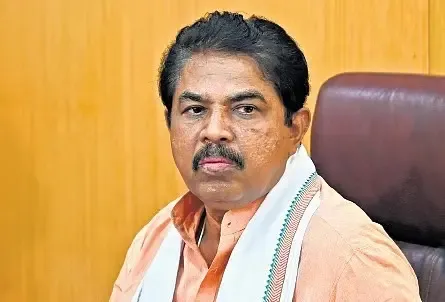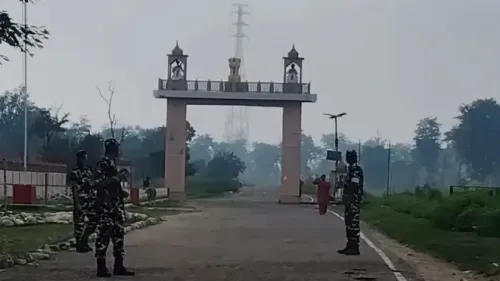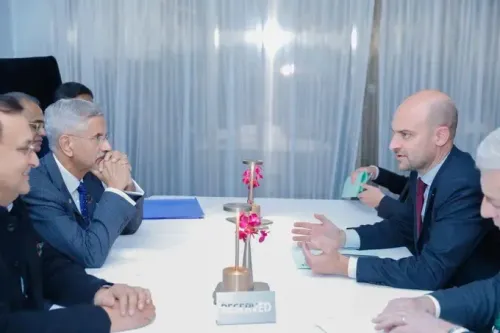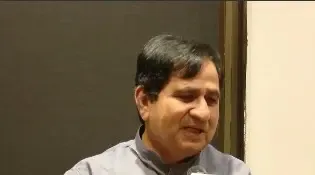Karnataka BJP Complains to NHRC Over 'Unlawful' Practices in Sacred Thread Row

Synopsis
Key Takeaways
- Karnataka BJP files complaint with NHRC.
- Hindu students barred from taking CET due to sacred threads.
- Government apologizes and promises justice.
- Concerns over religious freedom violations.
- Legality of actions questioned under the Constitution.
Bengaluru, April 25 (NationPress) The Karnataka BJP has lodged a formal complaint with the National Human Rights Commission regarding the sacred thread row, wherein students wearing janviara/janeu were barred from entering to take the Common Entrance Test (CET) within the state.
In the complaint, R. Ashoka, the Leader of the Opposition in the Karnataka Assembly, pointed out that while Hindu students adorned with sacred threads were denied access, Muslim girls wearing hijab were permitted to sit for the exams.
Ashoka stated, "I have submitted a complaint to the National Human Rights Commission on Thursday concerning the violations of personal beliefs by the Government of Karnataka, which forced students to remove their sacred religious symbols such as Janivara (Yagnopavita) and Shivadara during the CET at multiple centers across the state."
He urged the Commission to take immediate and appropriate measures to protect the rights and dignity of citizens, particularly the youth, whose futures should not be compromised by such unlawful and discriminatory actions.
"I express my deep concern regarding a series of alarming incidents that have transpired in Karnataka, which have created significant distress within the Hindu community and, in our perspective, represent clear breaches of fundamental human and religious rights," Ashoka's complaint elucidated.
During the recent Common Entrance Test (CET) and other significant competitive exams, numerous Hindu students were allegedly coerced into removing sacred religious items such as the Janivara/Yajnopaveetha (sacred thread) and Shivadara (sacred threads with rudraksha beads).
Additionally, similar orders were reportedly issued for other examinations, where Hindu girls were instructed to take off their mangalsutras, bangles, and anklets, he noted.
Ashoka emphasized that these actions, carried out without any legal backing, contravene the principles laid out in the Constitution of India, notably the right to freedom of religion (Article 25) and the right to dignity and privacy (Article 21). Furthermore, these practices have inflicted psychological harm on students, impacting their academic performance and mental health.
Significantly, the Congress-led government in Karnataka has issued an apology for these incidents and has ordered the suspension of the PU College Principal and staff involved. The government has also assured that the student who was denied entry to the exam would receive justice.








